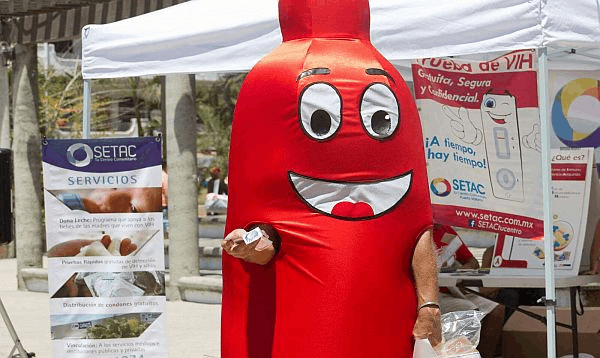Puerto Vallarta, Mexico - A new report from the Pan American Health Organization (PAHO) and UNAIDS says that expanding access to all HIV prevention options that are now available would reduce the number of new cases of HIV in Latin America and the Caribbean, which since 2010 has remained at 120,000 every year.
 |
"We have seen important progress in the fight against AIDS in Latin America and the Caribbean, with major reductions in childhood infections, improved treatment and fewer deaths from AIDS. But we have not yet seen the same success in terms of reducing new cases in adults," said PAHO Director Carissa F. Etienne. "Preventing new infections requires intensifying efforts and ensuring that the most vulnerable people have access to all options and new technologies in a discrimination-free environment."
The report advocates what is known as the combination prevention approach, which is based on scientific evidence, respect for human rights and nondiscrimination, and which includes three elements: offering a comprehensive package of biomedical interventions to users, promotion of healthy behaviors, and establishment of enabling environments that facilitate access to and use of prevention measures.
According to the report and UNAIDS data, the majority (64%) of new HIV cases occur in gays and other men who have sex with men, in sex workers and their clients, in transgender women, in people who inject themselves with drugs, and in couples belonging to those key population groups. In addition, one third of new infections occur in young people aged 15 to 24.
"Reducing new HIV infections among key population groups and the most vulnerable, including women and young people, will require specific high-impact HIV prevention actions, access to evidence, treatment for all, and joint actions against discrimination," said UNAIDS Regional Director for Latin America and the Caribbean CÚsar N˙˝ez. He added that it is equally important to have "an unwavering commitment to respect, gender equality, protection and the promotion of human rights, including the right to health."
Offering a range of prevention methods
 |
Other recommendations include providing pre-exposure prophylaxis (PrEP), to people at high risk of contracting HIV and offering post-exposure prophylaxis (PEP) in emergency situations, such as when someone has sex with a partner without knowing that person's HIV status. Although the Region of the Americas pioneered early research that supported WHO's 2015 recommendation to adopt PrEP, only 3 of the region's countries currently offer pre-exposure prophylaxis in their public health service.
The report also advocates distribution of condoms and lubricants, offering syphilis testing at the same time as HIV testing, and providing universal access to treatment, which significantly improves the health of people with HIV while also reducing the risk that they will infect their partners. The report also recommends the promotion of peer-led community outreach activities and providing health information and education.
The publication warns against dependence on international funding for prevention actions (such as peer education and provision of condoms and tests by NGOs) for key population groups, while also highlighting the decisive role that civil society can play in making the HIV response more effective, particularly in the area of prevention.
The report calls on governments, civil society and international organizations to work together in partnerships to accelerate the introduction of new prevention technologies, expand the availability of prevention options and ensure universal access to HIV prevention services to reduce new infections and end the AIDS epidemic by 2030.
For 2016 data and more information regarding AIDS in Latin America and the Caribbean, read the full article at paho.org.
 |
 The purpose of the SETAC Community Center, located at Aldanaca 178, 4A & 4B, in the Colonia Versalles of neighborhood of Puerto Vallarta, is to provide essential services to the community, including physical and mental health treatment, referrals, and education in an atmosphere of safety, free from discrimination. For more information, contact Paco Arjona at (322) 224-1974 or paco(at)setac.com.mx.
The purpose of the SETAC Community Center, located at Aldanaca 178, 4A & 4B, in the Colonia Versalles of neighborhood of Puerto Vallarta, is to provide essential services to the community, including physical and mental health treatment, referrals, and education in an atmosphere of safety, free from discrimination. For more information, contact Paco Arjona at (322) 224-1974 or paco(at)setac.com.mx.Click HERE to learn more about Centro Comunitario SETAC.



